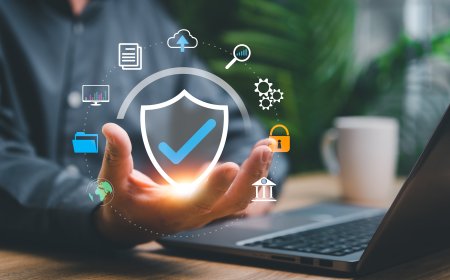A Beginner-Friendly Guide to the Digital Currency Revolution

Cryptocurrency has gone from a niche concept discussed by tech enthusiasts to a global financial topic impacting millions. While headlines focus on Bitcoin's price surges or sudden drops, theres more to crypto than speculation. It represents a shift in how people think about money, investment, and technology.
What Is Cryptocurrency, Really?
At its core, cryptocurrency is a digital form of money. Unlike traditional currency issued by governments (like the US Dollar or Indian Rupee), cryptocurrencies are decentralized. This means no central bank or authority controls them. Transactions are recorded on something called a blockchain, a digital ledger that is secure, transparent, and permanent.
Popular cryptocurrencies include Bitcoin, Ethereum, and Litecoin. Each has its unique purpose and technology backing it. Bitcoin, for example, was created as an alternative to government-backed currency. Ethereum goes a step further, allowing smart contractsself-executing agreements without intermediaries.
Why Are People So Interested in Crypto?
One reason cryptocurrency has gained attention is its potential for high returns. Early Bitcoin investors saw their holdings increase in value by thousands of percent. But beyond investing, crypto offers other advantages:
- Privacy: Transactions can be more private than using a bank card.
- Security: Blockchain technology is considered highly secure due to its complex encryption.
- Global Use: You can send crypto to anyone, anywhere in the world, without needing a bank.
This growing interest has even reached lifestyle spaces. For example, while visiting an ecig store, you might notice some shops now accept Bitcoin as a form of payment, reflecting how digital currencies are becoming part of everyday transactions.
How Does Blockchain Work?
Blockchain is the technology that makes cryptocurrency possible. Imagine a public spreadsheet that records every transaction ever made with a particular cryptocurrency. Once a transaction is recorded, its nearly impossible to change. This transparency helps prevent fraud and ensures trust among users.
The blockchain is maintained by miners or validators, people who use computers to solve complex mathematical problems that keep the network running. In return for their work, miners earn cryptocurrency as a reward.
Getting Started with Crypto
If youre interested in exploring cryptocurrency, heres a beginner-friendly approach:
- Choose a Cryptocurrency Exchange: Platforms like Coinbase, Binance, and WazirX allow you to buy, sell, and hold crypto.
- Set Up a Wallet: A crypto wallet stores your digital currency. Wallets can be software-based (on your phone or computer) or hardware-based (physical devices).
- Start Small: Since crypto markets are volatile, its wise to invest only what youre willing to lose initially.
- Learn Security Basics: Enable two-factor authentication, never share your private keys, and be cautious of scams.
Real-World Uses of Cryptocurrency
While many people view cryptocurrency as an investment tool, it has practical applications too:
- Cross-Border Payments: Sending money internationally can be faster and cheaper using crypto instead of traditional bank wires.
- Online Shopping: Some retailers now accept cryptocurrencies as payment.
- Decentralized Finance (DeFi): Crypto enables financial services like loans and insurance without needing banks.
Interestingly, cryptocurrency has even made its way into lifestyle and hobby communities. Take smoking vape enthusiasts as an example. In some niche circles, its not unusual to find crypto payment options at online stores that sell smoking vape products, blending tech culture with lifestyle choices.
Risks to Keep in Mind
Like any investment, cryptocurrency carries risks:
- Price Volatility: Crypto prices can swing dramatically in a short period.
- Regulatory Uncertainty: Governments are still figuring out how to regulate digital currencies, which could impact their value and legality.
- Security Risks: If you lose your wallet's private key or fall for phishing scams, your crypto could be gone forever.
Thats why research and caution are essential before diving into the crypto world.
Whats Next for Crypto?
The future of cryptocurrency looks bright but complex. With major financial institutions showing interest and governments exploring digital currencies of their own, crypto is no longer an outsider technology. Projects like Ethereum 2.0 and decentralized apps (DApps) continue pushing innovation.
We can also expect better user-friendly tools, making crypto easier for non-technical users. Whether its paying for groceries or buying accessories from an ecig store, using cryptocurrency might soon feel as normal as swiping a credit card.
Final Thoughts
Cryptocurrency is changing the financial landscape in ways both big and small. From enabling faster global transactions to offering a new form of investment, it holds promise and potential. At the same time, like any powerful tool, it comes with responsibility.
By starting small, staying informed, and being mindful of risks, anyone can begin exploring the world of cryptocurrencywithout feeling overwhelmed. The digital revolution is already here; now its up to us how we choose to participate in it.


























